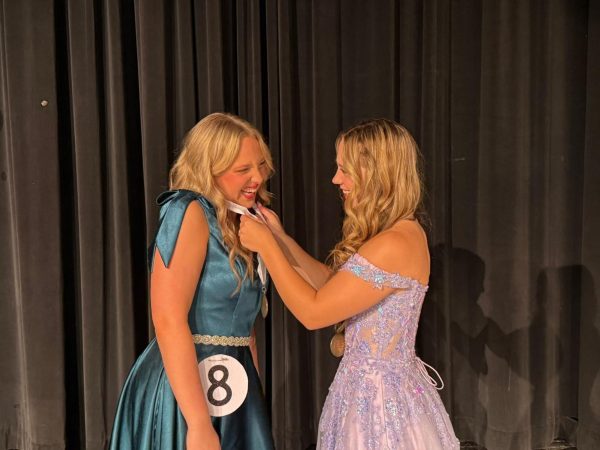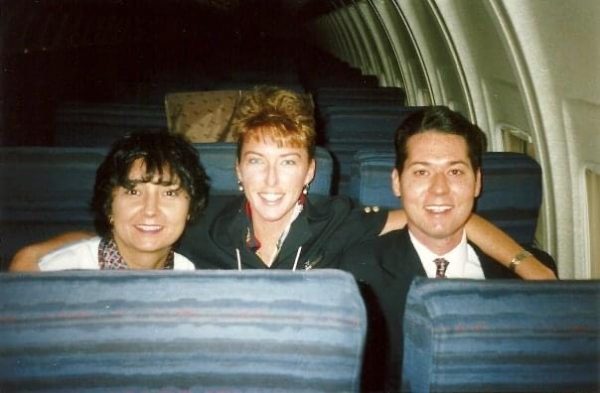Tips and Tricks For Auditioning with Mr. Lawwill
With the help of Mr. Lawwill, the director for the school musical this year, students will be prepared for auditions with these tips and tricks.
As the musical season is drawing nearer, auditions are proving to be the most nerve-wracking obstacle in an actor’s way before ultimately joining the cast.
With the help of Mr. Lawwill, the director for the school musical this year, here are some tips and tricks to help auditions go well.
1-Be Prepared
“It’s nice to be as prepared as you can be so that would mean knowing what your director, casting staff, whoever that may be who’s in charge, knowing what they are asking for,” says Lawwill. Preparation is the thing that can ultimately make or break an audition. Lack of preparation can lead to underdeveloped vocal skill, discomfort, and, ultimately, more intensified nerves. Even if the time and effort doesn’t necessarily impact vocal skill, becoming more comfortable with the material will enhance the overall audition.
2-Get Plenty of Sleep
This may be one of the most important things going into an audition. How one takes care of their body is pivotal to how well they do in an audition. “ Rest builds into our brain’s ability to recuperate memories, that limited resource that rest actually gives us more of. Also helps keep our stress levels down,” Lawwill explains. If someone chooses to audition for a principal character, then they must have their repertoire memorized. Lack of sleep can affect how well the lyrics and notes are delivered as well as how well one’s body reacts to movement and choreography.
3-Be Respectful
Respect comes in many different forms and fashions. When auditioning for a musical, however, it is pivotal to treat every single actor, crew member, and casting staff with the utmost kindness both on and off the stage. These are people that one may potentially find themselves working with. “If you can’t work with a group, it’s gonna be really hard to be in a show where you’re working with other people,” Lawwill says. Working together is one of the things that makes theatre that much more impactful.
4-Present Yourself Well
“Something that I’m drawn to is how you present yourself,” says Lawwill. Both on and off the stage, it’s hard to miss how an actor interacts with their fellow peers as well as how they carry themself. It’s essential to carry yourself confidently, while not coming across as too arrogant. There’s a fine line between confidence and arrogance, and as an actor, one must learn to walk that tightrope or else become a red flag in the casting staff’s eyes.
5-Wear Comfortable Shoes
There is dangerous water in what you should and shouldn’t wear to any audition. By wearing clothes and shoes that may restrict or cause irritation, it can shape how well one takes instructions when it comes to movement. “Casting directors, dance directors, whoever is in front of you may read that as ‘oh they didn’t do that properly’ as opposed to you’re just in pain,” says Lawwill.
6-Don’t Make Your Mistakes Obvious
There are many different things that could ‘go wrong’, so to speak, in an audition. Voice cracking, forgetting lyrics, doing the wrong dance move… these are all things that could potentially be a ‘mistake’. “You don’t have to tell us ‘oh, my voice cracked. Sorry I’m tired, I’m thirsty, xy and z,’” says Lawwill. “Let’s just continue to move forward.” Casting directors are looking for how well one can adapt and continue without being phased by a voice crack or a misstep. All other technicalities can be further developed alongside the directors.
7-Listen and Persevere Through Feedback
“The ability to persevere when you don’t do as good as you want or you get harsh feedback…finding a way to process through that is really the hardest audition skill that I don’t think people talk about enough,” says Lawwill. Going into an audition, adaptation is key. Directors want to see how well an actor can adapt to a specific character or how well they can use feedback to better their audition. If an actor is able to take this criticism, that tells directors that they are perhaps easy to work with or they listen.
8-You Don’t Have to Be Perfect
Art is all about the imperfections being enhanced to create intrigue and spectacle. “You have to practice perfection for that to be permanent,” says Lawwill. “As artists we are always in the pursuit of perfection, but we never really arrive there.” Obviously, practice and all these tips can help work towards the perfection one may strive for, but the craft may not always be perfect, and that’s okay. Art is a celebration of flaws and imperfections. While it’s nice for dances to be uniformed, for songs to be pristine, and scenes to be emotional, that doesn’t always mean they are going to be perfect.
9-Don’t Wear Costumes
Costumes are, essentially, a prohibiting factor for the process of casting. The main purpose of a costume is to make one be transported to the world and persona of a specific character. “What may happen and what can happen is that your vision of a character may limit you from what I may see someone as, what Mr. Olson may see someone as, that an outside casting director may see someone as,” says Lawwill. While there is the chance that a costume can elevate your performance, the negatives outweigh the positives.
10-Have Fun!
Perhaps the most important thing is to have fun. Auditions and theatre are all about celebrating. If one is having fun during their audition, stress, nerves, anxiousness… they all seemingly fade away. This presence gives directors a clear vision of the actor’s comfortability on stage. When in doubt, just remember to have fun.
Auditions for the school musical, Bright Star, are on Sept. 26 and 27 after school.
Callbacks will be the following Thursday, Sept. 29, with the anticipation of a cast list to follow shortly after that.
Come audition and remember that you are always auditioning!
READ ZACH’S ACCOMPANYING STORY ON BRIGHT STAR.

Once upon a time, a baby was introduced into the world. Fast forward 17 years, and you may find that this baby has grown into being a very talented, amazing, and awesome Features Editor. That baby grew...












